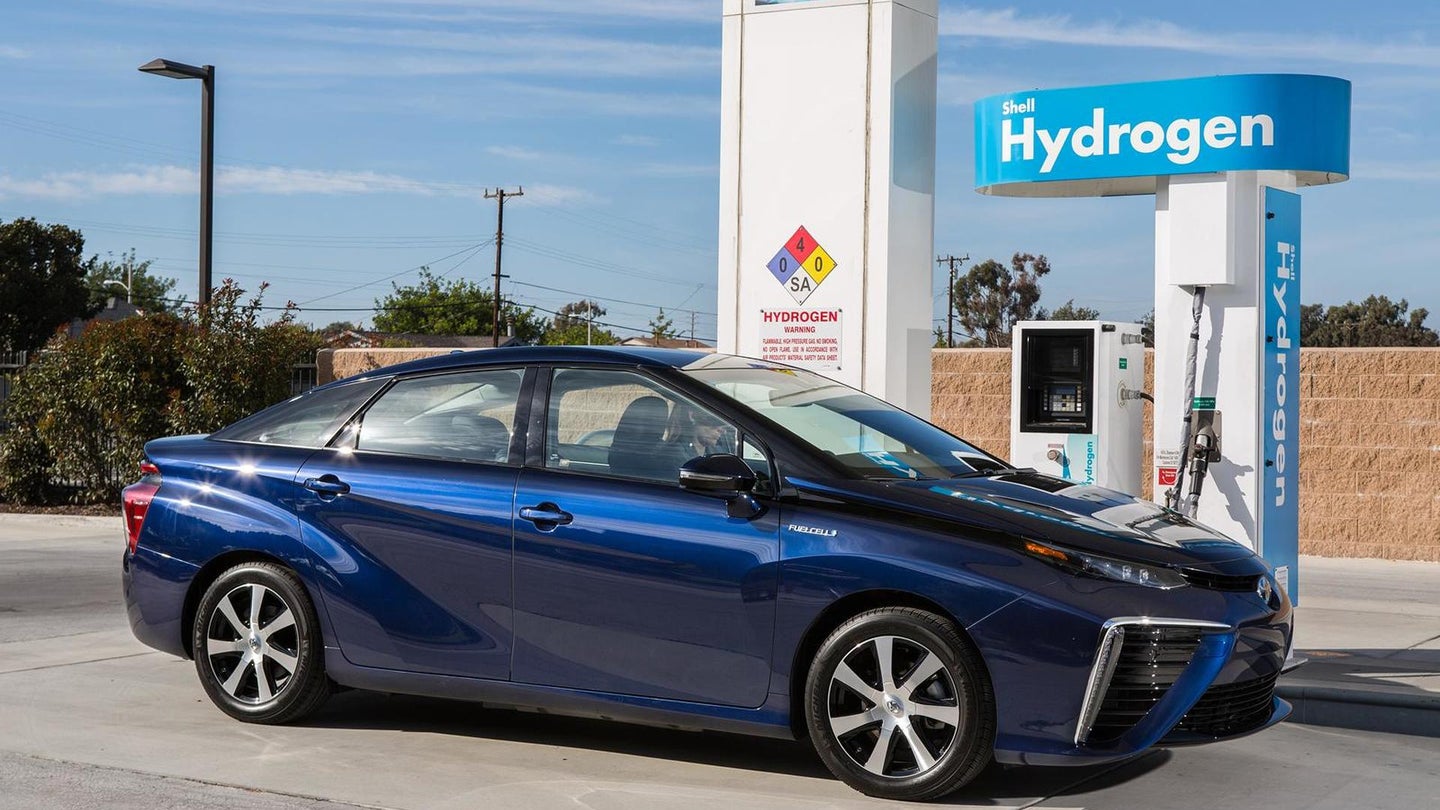Researchers Believe Rare Elements Can Make Hydrogen Production More Efficient
The process involves extracting hydrogen from methane.

Hydrogen fuel-cell cars offer quick refueling times and longer ranges than electric cars. But actually producing enough hydrogen to meet the demand of a large fleet of fuel-cell vehicles has proven challenging. Researchers from Spain and Norway are working on a potential way to improve the process. The researchers are testing a more-efficient version of steam reforming, a process that extracts hydrogen from methane, according to Engadget.
Currently, high-temperature steam is mixed with methane under high pressure in the presence of a catalyst, usually nickel or platinum. The reaction results in hydrogen, carbon dioxide, and water.
But the current process is only 65 to 75 percent energy efficient, and it still produces significant amounts of greenhouse gas in the form of that CO2. That's why researchers are trying something different.
The experimental process uses a ceramic membrane made from barium, zirconia, yttrium, and other rare elements. An electric charge is applied across the membrane, and then the steam and methane are introduced. This method improves energy efficiency to 88 percent, researchers say. A more energy-efficient process means less methane is required, and that in turn should reduce CO2 emissions from hydrogen production.
The researchers also claim that hydrogen produced using this method does not require any further refinement or processing before it can be used in fuel cells. They even claim that the production process can be scaled down so that people can produce hydrogen at home, assuming they have a supply of natural gas. Just as electric-car owners can recharge their vehicles by using solar panels, drivers of fuel-cell cars may have their own homegrown energy source.
A production process that flexible could have a big impact on fuel cell vehicles. The ability to create more hydrogen in more places would help alleviate the current bottleneck of fueling infrastructure that is restricting the proliferation of fuel-cell cars. But like any experimental process, promising research doesn't mean the rare-element catalyst will work on a commercial scale.
